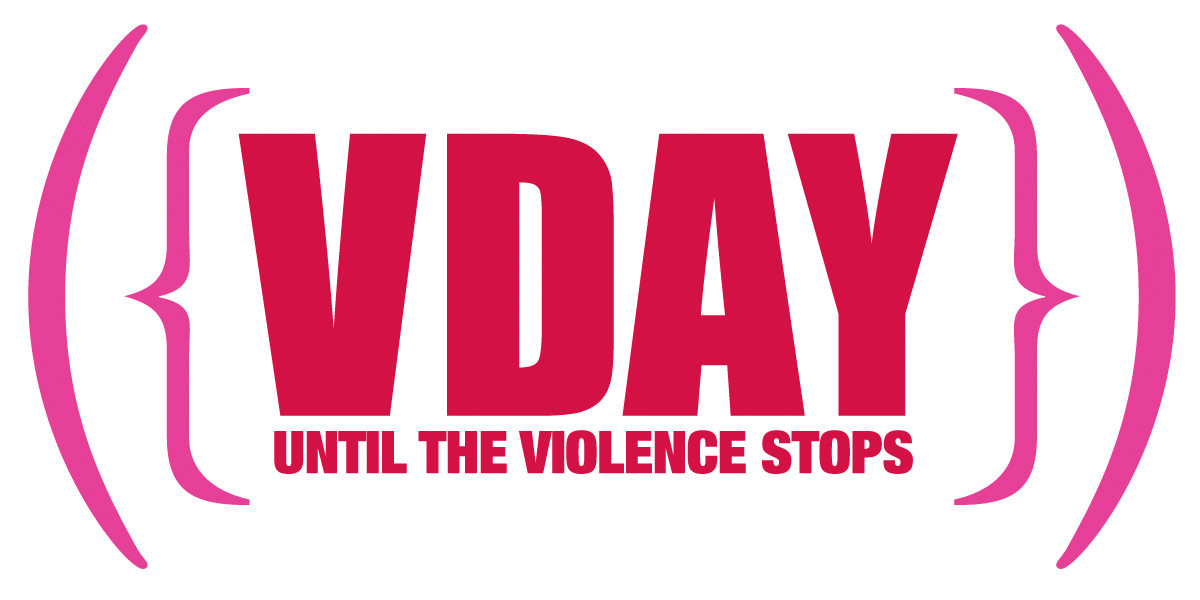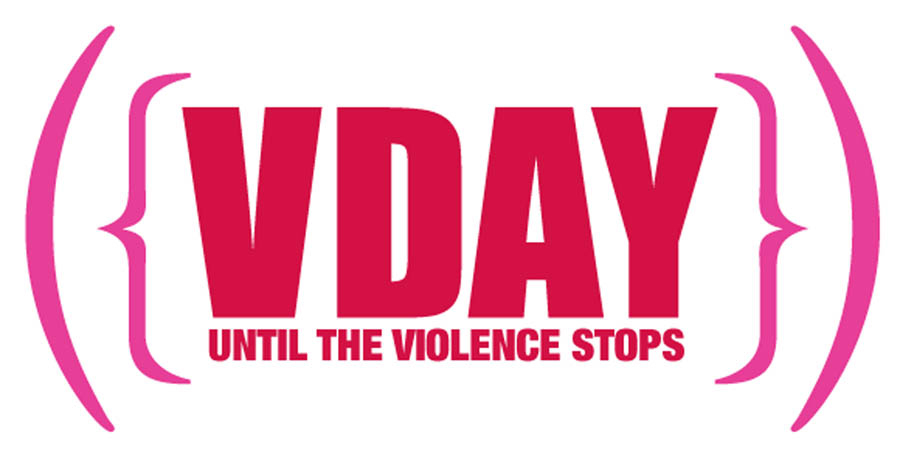22 Apr One Billion Rising Global Coordinators Amplify the 2021 “Rising Gardens” Theme, Making the Connection between Exploitation of Women and the Exploitation of the Earth
Reposted from onebillionrising.org
ONE BILLION RISING GLOBAL ACTIVISTS SPEAK OUT ON RISING GARDENS, THE EXPLOITATION OF WOMEN AND THE EARTH, GLOBAL SOLIDARITY AND GRASSROOTS LEADERSHIP
Around the world, activists have heard the call to action of One Billion RISING GARDENS, a global grassroots call for revival, restoration and transformation, making the connection between violence against women and destruction of the earth. Survivors, artists, and activists are planting gardens and creating unique works of art while hosting events online and on the ground worldwide. RISING GARDENS participants are highlighting the convergence of women’s inequality and food insecurity, land ownership, healthcare access, and the impacts of the fossil fuel industry on frontline and marginalized communities.
Ready to RISE? Join survivors, artists, activists, workers, indigenous communities, and youth in towns, cities, schools, fields and gardens worldwide as together we RISE, garden, resist. Visit OneBillionRising.org
One Billion Rising activists are digging deep, dynamically activating their communities via a range of creative Rising Gardens initiatives and creative resistance events including – seed distribution through seed banks and exchanges in India, Congo, Bangladesh, Philippines, United Kingdom, and Sri Lanka; the planting of community gardens in India, Portugal, Congo, Hong Kong, Zimbabwe, South Africa, Cameroon, Eswatini, and Nepal; and education about herbal medicine and the effects of gardening to boost immunity in the UK, Mozambique, Singapore, Congo, and India, actions to advance women’s rights to land and property in Indonesia, Malawi – among so many other initiatives.
We asked the One Billion Rising coordinators a series of questions. We trust you will be as inspired as we are by their vision and their voice. HERE IS WHAT THEY HAD TO SAY:
Gardening centralizes growing and giving; it is not about taking or acquiring. It centers care over consumption. Why now, in relation to COVID-19, is it more necessary than ever to apply these principles in our communities? And what can be possible from this?
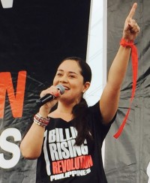
MONIQUE WILSON, ONE BILLION RISING GLOBAL DIRECTOR
“Gardens remind us of our enduring connection to life, to each other and to Earth, which compels us to do everything in our power to protect and nurture life and all that is sacred without doing harm. The cultivation of plant life is also a means for survival. Growing food in a garden organically – be it your own indoor garden or a community garden – allows you to feed yourself and your community. It provides autonomy and underscores the need for food security in a world where so many are denied these essential resources.” – Monique Wilson, One Billion Rising Global Director
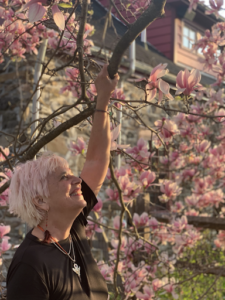
V (EVE ENSLER), FOUNDER ONE BILLION RISING & V-DAY
“Gardening centralizes growing and giving, it is not about taking or acquiring. Maintaining a garden is an act of resistance because it does the opposite of what the capitalist machinery does – it connects people and communities with the Earth. To grow one’s own food, to grow beauty and life – is revolutionary in this age of ecological, environmental, societal, spiritual collapse. To put our energies, our creativity, our hearts into everything that can grow and sustain all forms of life when the current world order is bent on destruction is a radical political act. To care for a garden – to nurture it to bloom and grow – deepens our relationship to Mother Earth. Gardens are sacred spaces that engage and awaken our senses, make us believe in wonder, beauty and connection to all living beings. Like theatre, they are a place of play and of transformation – where we can celebrate and contribute to life.” -V (Eve Ensler), playwright, activist and Founder One Billion Rising and V-Day
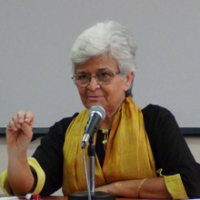
“For us gardening is a political act. It not only takes us away from the destructive paradigms that push chemical agriculture towards organic agriculture, it changes us as people and as communities. Cultivating a garden with others frees us from personal greed. It deepens our interconnectedness as we connect not just with the plants but also the tiny creatures in the soil that make the growth possible. It shows us that we “inter-are”, in the words of the feminist scholar Lata Mani. Our current paradigms exacerbate inequalities. We must move towards a world that focuses on our inter-connectedness. “ – Kamla Bhasin, One Billion Rising Coordinator for South Asia
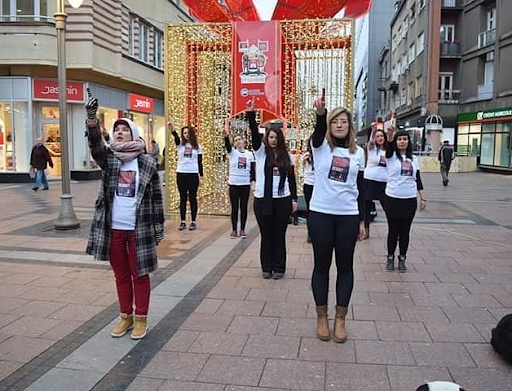
CENTER ZA DEVOJKE, SERBIA
“The Covid 19 virus pandemic has left many people without a job, and thus without food, which has automatically called into question the existence of these people and their families. The concept of gardening in urban areas is an important factor that would bring people, and especially children, closer to the importance of the environment, and instill responsible behavior towards the environment from the earliest days. Growing their own food would reduce the risk that, in the event of a recurrence of such a crisis, people would starve even though they live in the city. The bonus is that interacting with plants would encourage children’s physical, social, emotional and cognitive development. If this concept comes to life, new generations have the opportunity to grow up with better values and principles, slowly moving away from consumerism, which brings with it excessive production of food that ends up in landfills, unused, which drains resources, while millions of people and children starve.” – Center za Devojke, Serbia
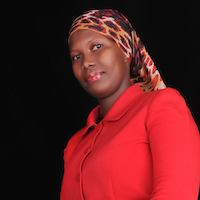
“Socially, economically, and health wise, the Covid19 pandemic has placed more strain on women than any other group. The pandemic exposed the deeply rooted inequalities in our societies especially in respect to resource allocation. The Covid19 global vaccine wars have also exposed another aspect of the greed that has engulfed our world as we saw rich nations stockpile vaccines, leaving poorer nations to fend for themselves.
OBR Gardens challenge this culture of greed and selfishness. They teach us the value of “Not Eating Alone”. But leaving some for other fellow human beings, and for the earth to rebuild itself. They teach us a better way to rebuild our world, this is fairer, and more just to women and girls.” – Zulaika Nanafuka, One Billion Rising Coordinator for Uganda
What is the connection between how we treat women and how we treat the Earth? Why is it important to link exploitation in terms of women’s bodies, land and labor – to see how these are all connected?
COLANI HLATJWAKO, ESWATINI AND ONE BILLION RISING REGIONAL COORDINATOR FOR AFRICA
“The connection between women and Mother Earth is inseparable. Women nurture the earth, we are the protectors of mother earth. Our survival as women is dependent on Mother Earth, through farming as a source of income and food. Women give life, hence the earth does the same. Women and Mother Earth are so sacred they are needed for the survival of the world. When women and Mother Earth are exploited the whole world suffers. When women are denied access to use land, there are high chances that those who are using the land exploit it. If the earth is exploited there will be no means of survival for women, there will be hunger. When women are exploited no one will take care of Mother Earth.
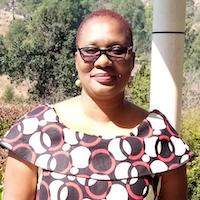
Where there is war over land, women are the most affected. Some are raped or killed when there are land disputes. In Africa, patriarchal/cultural and religious beliefs, political instability, corruption, violent conflict and colonialism have hindered women’s access to land. Patriarchy has been a major driver of the resource curse on the continent; feeding into war and feminized poverty on the continent thus greatly affecting women and girls.
In Eswatini, cultural practices and traditions are used to deny women their rights to have access and ownership to land. Some of these women are denied ownership of land if they are not married or if the husband dies, they are forced to marry their in-laws in order to have access and control of the land left by the husband.
So this is a very important call to everyone to stop the exploitation of Mother Earth and women.” – Colani Hlatjwako, One Billion Rising Regional Coordinator for Africa
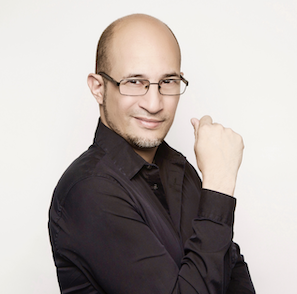
ANDRES NAIME, MEXICO
“Since ancient times, women have had a special relationship with nature. They contribute enormously to the well-being and sustainable development of their communities, as well as to the maintenance of the planet’s ecosystems, biological diversity and natural resources. Women across the planet use and interact with natural resources and ecosystems on a daily basis. They are the first to feel the effects of climate change when they have to travel longer and longer distances to find what they need to feed their family.
The recognition of what women contribute or can contribute to the survival of the planet and to development remains limited by gender inequality and the social exclusion which continue to increase the negative effects of unsustainable and destructive environmental management on women and girls. Persistent discriminatory social and cultural norms reinforce unequal access to land, water, and other resources, as well as lack of participation in environmental planning and management. Despite these obstacles, OBR and activists around the globe are making great progress, and governments are increasingly drawing on their expertise and leadership when making important environmental decisions. Even so, much remains to be done to support the role of women in decision making and ensure a better future for all.“ – Andres Naime, One Billion Rising Coordinator for Mexico
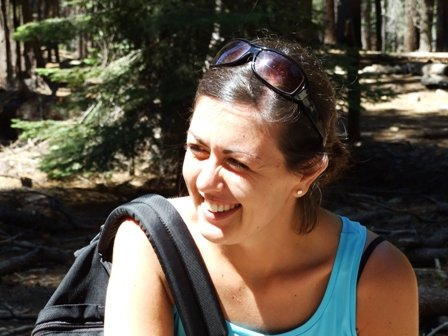
SYLVIA PALERMO, ITALY
“Respect the earth and the women and take care of them because they are the origin of life. Women and earth are linked by an ancestral thread, which originates in the mists of time and educating people to love the earth means educating them to love their neighbor. For this reason it is very important to link our fight against all abuses, violence and exploitation of women also to the environment, to many other disadvantaged groups, to workers without protection. It is a way to fight against a system that is wrong, unjust and also ineffective (just think of the devastating effects of climate change or the effects that will have on the global economy if wealth is not fairly redistributed). It is no longer possible to look only at the present and exploit the planet and its people. It is necessary to live with conscience, to respect the earth and people, it is necessary to cultivate non-violence for a better future.” – Sylvia Palermo, One Billion Rising Coordinator for Italy
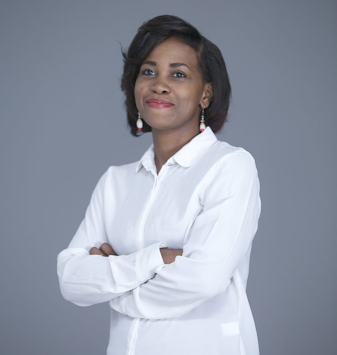
“Women give life to men, the earth gives life to the plants that nourish us, so they are both sources of life… There is indeed a connection between the way we treat our women and how we treat the land. Women work long hours sometimes to get nothing. Their work is often not recognized or valued. Not to mention that many men dispose of them according to their wants and desires. Some rape them, beat them, prostitute them with complete impunity….
As for land, everyone does what they want with it. Often we neglect what it can bring in on farms. Sometimes it is over-exploited and abused (also) to the point of unbalancing the ecosystem.
We extract and use each of its elements, forgetting that we have to take only what we need. We forget that if we overuse it, we are putting the next generation at great risk. Just as the conditions of women can be neglected, so can the care of the land. We minimize the benefits of the land, until we meet women farmers, watch the phenomenal work they do. We don’t always realize how much food this land has to offer us when we take care of it.
Just as land is overused, so it is with some women who work hard to get very little money.” – Rita Verdavainne, One Billion Rising Coordinator for Gabon
Why is it important to link Indigenous wisdom, and what does this look like?
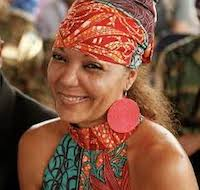
CHRISTINE SCHULER DESCHRYVER, DR CONGO
“Indigenous wisdoms show us other ways of living with nature than systematic exploitation. Asking ourselves if the wisdom of the indigenous peoples, those communities whose cultures have remained close to nature and to their land of origin, could effectively heal the world of its ills. Humanity should first ask itself about the work of indigenous people and the impact of this work on the world. The indigenous wisdom shows that the land is a sacred heritage. It must not be destroyed. It must be protected. The indigenous wisdoms deplore the conquests, the illegal occupations that their lands have suffered. These peoples, also known as first peoples, have in common that they live or have lived until recently in contact with nature. Whether they are hunters, farmers or breeders, they generally practice traditional techniques to guard, protect and nurture and be nurtured by their land.
The indigenous wisdom teaches us about the protection of the environment. The practices of these wisdoms provide lessons that teach us. But this same wisdom laments the fact that indigenous people share a painful past: survivors of a continuous history of dispossession and marginalized. This same wisdom teaches that the future of humanity on this planet is fundamentally tied to the environment, to the future of other species, and to our own diversity. Indigenous people are strongly concerned with the protection of the environment because of their way of life, they are guardians of nature and conservers of diversity.” – Christine Schuler Deschryver, V-Day Congo Director and Director of City of Joy
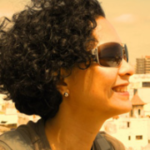
ROSSANA ABUEVA, UNITED KINGDOM
“The global return to planting, being creative and working with our hands is evidence enough that we have been distracted by what this world defines as “development” and our natural evolutionary path derailed – indigeneous wisdom emphasizes love and care for the earth that has and will always provide… a symbiotic existence that to date, man’kind’ has miserably and arrogantly defied.” – Rossana Abueva, One Billion Rising Director for United Kingdom
As a leader in your community, what defines your leadership, and how does that impact your One Billion Rising efforts?
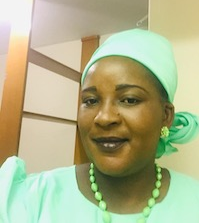
“My community defines me as a women’s rights defender. I always bring change to my community and change always starts with me not looking for anyone to change but it will start with you. I stand up and speak out about women’s rights. I am an advocate woman although others called me a rude woman.
The impact of One billion rising efforts:
- Women knows that they have rights to participate in decision making bodies,
- They knows that they can manage to end patriarch,
- They know that it’s our role and responsibility to protect the Mother Earth,
- They become leaders at area development committees, they take big positions at the community levels up to national level.
Being in the community means my work is in the community. I am a farmer, I work with women farmers, I grew up in the community , I know what is happening in the community and what I do and speak is reality. It is much easier to mobilize women and communicate with them.
Power is the ability to do work. Being organized is the power of collective action.” – Alice Kachere, One Billion Rising Coordinator for Malawi
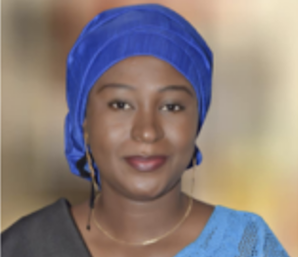
“I am focused and target oriented. I am very passionate about gender equity and women empowerment, many women and girls identify themselves. My OBR efforts are making big impacts among the average level women in the three communities where we held public risings. Daring to create discussion on GBV with religious and community leaders was very powerful. My leadership style is marked by my resilient nature, I always face difficulties and that makes me – somehow- strong.” – Massaran Bibi, One Billion Rising Coordinator for Mali
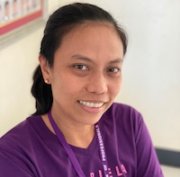
“I see myself not as an individual leader but part of a collective or movement of women creating and building collective leadership. My role would be to guide and share my knowledge with other women, encourage them to take on roles in their organizations or communities and develop themselves individually as they contribute to the movement and their communities. My individual development as part of the collective depends on the learnings I gain from women’s experiences, from activities and campaigns we launch, from trainings and discussions I attend with women, and from understanding the context from which the women are coming from. This appreciation, I think, provides women the opportunity and knowledge that OBR is not just a “project” or a campaign of an individual or a particular group but a campaign that can be participated and developed by everyone who agrees and believes in the call. For Gabriela, it is a platform and opportunity to reach out to as many women as possible, build unities with them to end oppression and exploitation of women, for human rights, and towards bigger unities such as to end imperialism and capitalism and patriarchy.” – Joan Salvador, One Billion Rising Coordinator for Philippines
What does being in community mean to you?

SYLVIA PALERMO, ITALY
“It really means everything to us. Our community makes possible and gives meaning to the existence of the One Billion Rising movement in Italy and we believe also in the world. All the people who make up our community help us to understand which are the most urgent problems and to find the right way, strength and means to continue to demonstrate with that energy, enthusiasm and optimism, although there is still so much to do, that characterize One Billion Rising and make it a unique movement in the world.” – Sylvia Palermo, One Billion Rising Coordinator for Italy

MARSHA PAMELA LOPEZ, GUATEMALA
“Being part of a community has helped me stay alive. The sense of belonging and productivity has given me a break to move on.
I can clearly say again that this community has saved my life, over and over again, since the day I had the opportunity to meet and be part of it.
V, Monique, Susan and all my classmates give me a sense of life.” – Marsha Pamela Lopez, One Billion Rising Coordinator for Guatemala
What is Solidarity to you? Why is global solidarity important, and how does One Billion Rising serve as a catalyst for global solidarity?
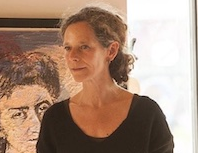
“Solidarity means that we cannot make it alone. It brings us to the realization that we are part of one unity. We do need each other and what we do to the other, we do to ourselves.
OBR is a global movement which shows and mirrors very clearly how we are connected with each other, locally and globally. And how we can support each other by raising our voice for all those who are not able to do it. If we stand together for one theme, one dream, one earth, one humanity, we are in solidarity and go for what we love. Solidarity is such a power and source of love.” – Janka Striffler, One Billion Rising Coordinator for Portugal
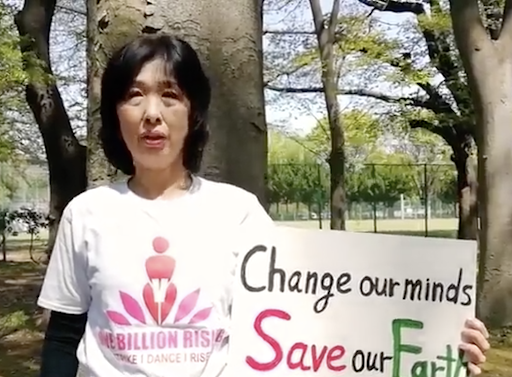
CHIKAKO HAMA, JAPAN
“Various wisdoms are gathered for things that cannot be done alone. Unpredictable ideas and imagination would come out and this makes the impossible possible. Empower each other. Solidarity is the foundation for change. Like the personal is political, what’s happening here is happening in the world. Solidarity is needed to break through the current situation. One arrow can easily break, but three arrows cannot be broken (this is a quote from the Japanese Sengoku warlords In English, three pillars of stability). If you have an unbreakable heart, solidarity makes revolution. OBR shakes the hearts of the people who are not aware of the problem and serves as a model for them to act.” – Chikako Hama, One Billion Rising Coordinator for Japan
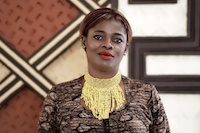
“Solidarity is unity or agreement to rise for common interest, with understanding and mutual support. Global solidarity is important for connecting with powerful people working hard for liberation, and love for all lives and our mother earth, global solidarity is empowering, supportive, understanding situation outside my context, global solidarity promotes intersectional feminism, it promotes knowledge, create a platform for exposing clandestine exploitations at Community and regional levels , Global solidarity creates spaces for visibilities of grassroots organisers and rural women , it amplifies the voices of survivors , organisers and supporters of Gender justice to larger audience.” – Omodele Ibitoye, One Billion Rising Coordinator for Nigeria
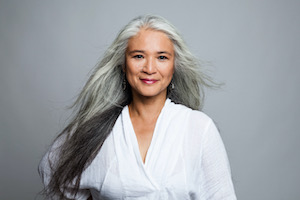
“Solidarity for me means to care for each other and to stand together. Now global solidarity is a must as there is no planet B and and so many issues are burning. Through One Billion Rising I can feel the connection and the global solidarity most.” – Aiko Kazuko Kurosaki, One Billion Rising Coordinator for Austria
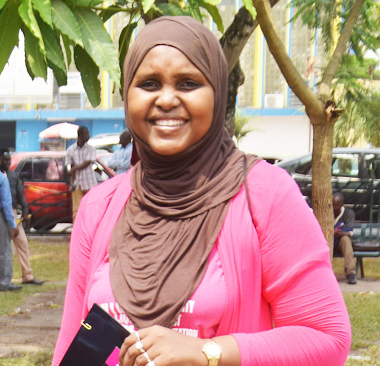
“I describe solidarity as carrying out an action with persons for a common goal. Global solidarity is important because it helps us fight a common problem, they say “many hands do light work” and One Billion Rising through it’s global solidarity has succeeded in doing what one woman could not be able to do on her own. For me in particular, OBR gave me the courage to tackle a problem that was very prevalent in my community but which I did not feel capable of doing. Being in this group was a trigger and a force that allows me to face difficulties. for my community, knowing that OBR is not just me but a group of strong and powerful women commanding respect.” – Aminatou Saher, One Billion Rising Coordinator for Cameroon
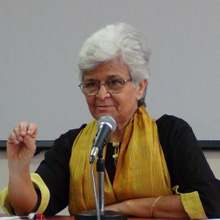
“Solidarity is the power of one person multiplied several times over. In our vision of solidarity, an individual is like a drop in the ocean and when we come together as a movement, we are as powerful as an ocean, a force of nature. By bringing together, year after year, hundreds of people giving back to their communities across the world, One Billion Rising makes us hope that change is not only possible, it is imminent. For us networks should be like SPIRALS, growing, becoming larger. Feminism and feminist solidarity have always been local and global. For us both are important.” – Kamla Bhasin, One Billion Rising Coordinator of South Asia
# # #
READY TO RISE?
READ about the 2021 theme, Rising Gardens.
CHECK OUT One Billion Rising’s blog for inspiration from global coordinators around the world.
VIEW 2021 Rising Gardens Artwork HERE
MEET the OBR Global Coordinators.

